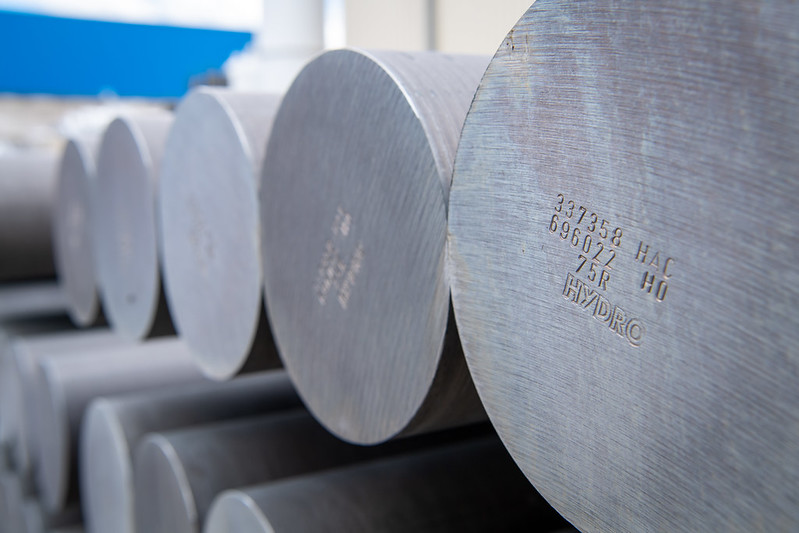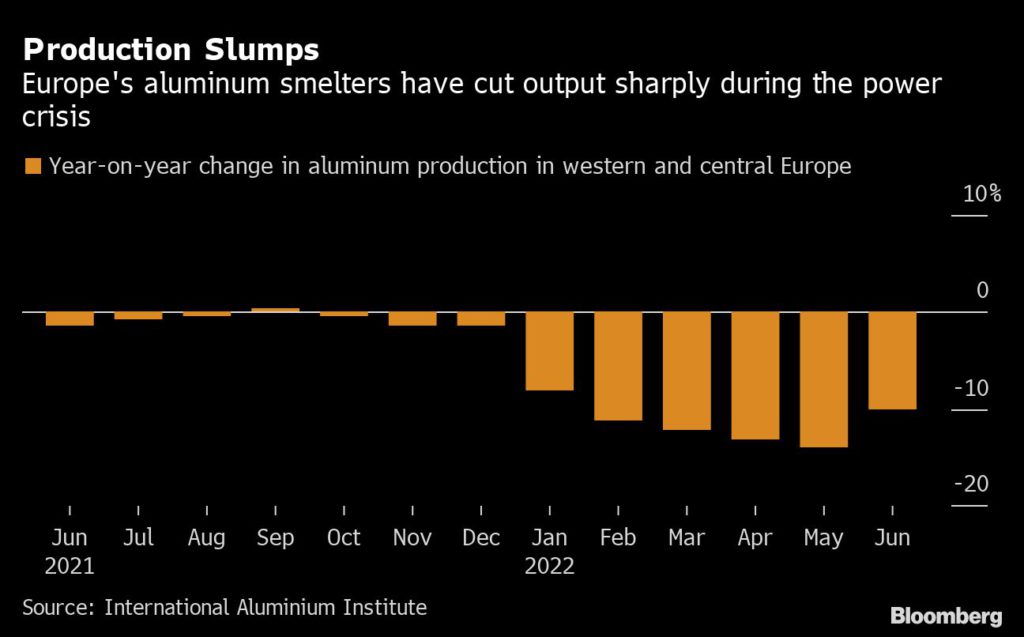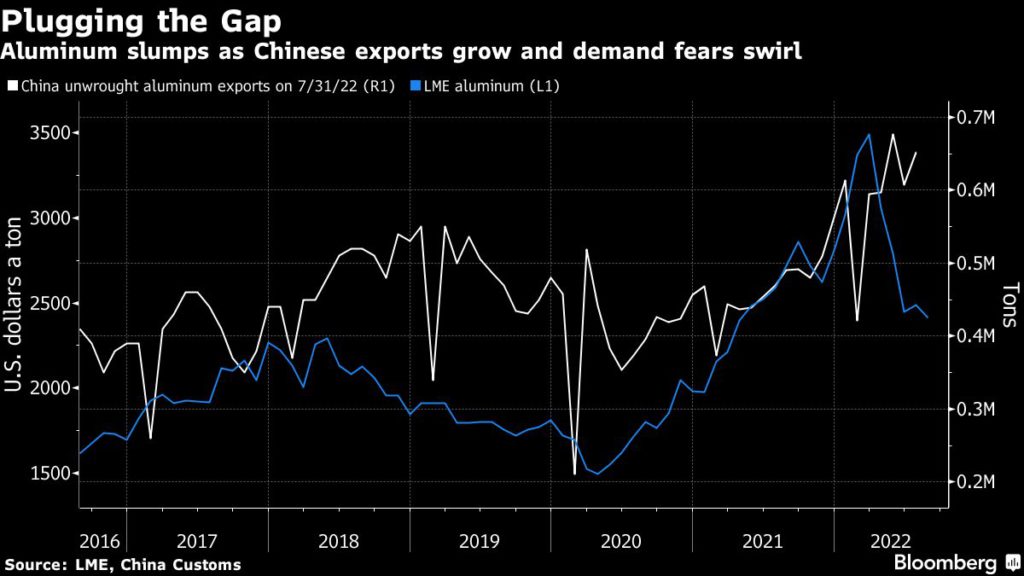Norsk Hydro shuts aluminum plant as Europe’s power woes deepen

Europe’s energy crisis has claimed another victim in the power-hungry metals industry, with Norsk Hydro ASA planning to shutter an aluminum smelter in Slovakia at the end of next month.
Aluminum is one of the most energy-intensive metals to produce, and the closure of the Slovalco facility adds to growing signs of stress in Europe’s industrial economy as power prices surge to record highs. The region had already lost about half of its zinc and aluminum smelting capacity during the past year, mainly as producers dialed back output. Hydro and others are now moving to shut down plants entirely.
Read more: Zinc price hits two-month high as Nyrstar halts production
Europe’s energy crisis is contributing to volatile trading on the London Metal Exchange, as traders assess a slew of supply losses against the rising risk that runaway inflation and tightening monetary policy will hammer demand for industrial metals in some of the world’s top economies. Aluminum initially jumped as much as 2% Wednesday before paring gains as European markets opened on a downbeat note.

Hydro, Slovalco’s majority owner, said the closure was a response to adverse conditions including “high electricity prices, which show no signs of improvement in the short term.” The smelter was running at 60% of its 175,000-ton annual capacity and would suffer substantial losses if it continued operations beyond 2022, the Norwegian firm said. On Tuesday, Hydro said production at another aluminum plant in Norway would be impacted by a strike starting Aug. 22, adding to the strain on supplies.
Slovalco will earn about 1.6 billion krone ($165 million) selling its hedges for power, metals and raw materials over the second half of the year, it said.
Industries from fertilizer to aluminum are being crippled by soaring energy costs as Russia squeezes gas flows to Europe following its invasion of Ukraine. Benchmark power prices soared to fresh all-time highs this week as the worst energy crisis in decades looks set to persist well into next year.
The metals industry’s massive power requirements leaves it in the firing line as power prices surge and politicians push ahead with measures to cut energy usage over winter. Each ton of aluminum takes about 14 megawatt-hours of power to produce, enough to run an average UK home for more than three years. Production of zinc — which requires about 4 megawatt-hours of power per ton — is also under acute strain, with prices rallying sharply Tuesday after one of the region’s biggest smelters said it would suspend output next month.
“Inevitably, the high European power prices are starting to see more aggressive closures of energy-intensive metal production facilities,” Colin Hamilton, managing director for commodities research, said in an emailed note. “Many zinc smelters in Europe have been running below full capacity all year, but this is the first full closure at a major facility.”

Traders are also monitoring power issues in China, where Sichuan province — a significant aluminum hub — is rationing electricity amid soaring temperatures. China boosted exports in recent months to help plug the gap overseas, and a reversal in that trend could underpin prices even as risks to demand grow.
Aluminum on the LME rose 0.8% to settle at $2,411 at 5:51 p.m. in London. Zinc, which hit a two-month high Tuesday, fell 4.3%. Nickel and copper also fell.
(With assistance from Daniel Hornak and Yvonne Yue Li)
{{ commodity.name }}
{{ post.title }}
{{ post.date }}




Comments